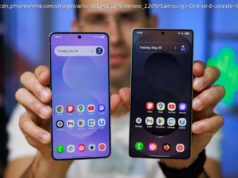Privacy often seems to be at odds with government surveillance and smart assistant technologies like Siri and Cortana. But do we need to sacrifice one for the other? We asked experts in a variety of fields to find out what a future without privacy might look like and whether that’s really such a bad thing.
“If you have nothing to hide, you have nothing to fear.”
It was an argument we heard a lot in the years following Facebook CEO Mark Zuckerberg’s famous claim that privacy was no longer a social norm. A lot has changed in the eight years since. The web has evolved, new tools make it easier to protect our privacy online, and scandals with social network s and other online entities have made privacy itself a hot topic once again.
And yet, as the second decade of the 21 st century edges towards its conclusion, we continue to sacrifice our privacy in the name of progress, often without our knowledge. But do we care enough about it to slow down the pace of technological innovation? To halt the development of more powerful interconnected services? Well, it all depends on who you ask.
In his 2014 Ted Talk titled, “ Privacy is dead and that’s great,” Richard Aldrich highlighted some of the exciting benefits of a privacy-free future. He suggested that through smartphones and cameras, the general public could help solve high-profile crimes, corporations wouldn’t be able to dodge tax obligations through shady accounting, and tracking people’s biometrics could lead to great advances in healthcare.
His idea of the future relies on such transparency extending to everyone, including the wealthy and politically connected. But the promise of living longer by having health data on tap for analytical services and artificial intelligences, could be an easy sell in comparison to the seemingly ever more nebulous concept of privacy.
In a talk at dConstruct 2014, Tom Scott took a step further. He suggested that by 2030, privacy could become something that only grandparents remember. Such an age of pervasive surveillance would create a socially manned, digital panopticon he said, helping to bring crime levels to historic lows, making everyone accountable to their actions, not just of today, but of everything they ever did.
In many ways, we’re seeing the first hints of such a future right now.
If the 2000s were a decade of advancements in compact computing and processing power, the 2010’s have been driven by data. With ever expanding free services offered by companies like Google and Facebook, big data and the analytics that followed, have lead to huge profits for those companies, but also exciting new products. Translation tools, image and speech recognition, have all improved enormously in the past few years thanks to the collection of data on a hitherto unheard of scale.
Smart assistants like Siri and Cortana take those tools and improve them further through personalization by learning behaviors based on information gathered on the user(s). Smart speakers like Amazon’s Alexa driven Echo devices are increasingly offering more data driven functions with voice support.
These are all ideas that on paper sound like they would open up the world to a beautiful, data-driven tomorrow. As Google’s Sundar Pinchai explained, this vision of the future is”AI-first” and allows us to live alongside this augmented reality in a manner that is more personalized, if less anonymous.
It sounds like the trade is worth it then, right? Well, not to everyone. Rising to counter these utopian ambitions is a growing movement that doesn’t want to see such a future come about, especially if it’s not willingly instigated. That’s proved a very real concern too, since companies like Google have been found to effectively disregard user preference in their ever hungrier quest for data. There’s a disturbing perspective on where this is leading, and the stakes rise by the day.
One expert waving a red flag is Lotte Houwing. She’s a privacy enthusiast who works on strategic litigation in the field of human rights in the Netherlands. For her, it’s all about data and who controls it.
“I share different data with my employer than with my mother, and it is important for me to have that control,” she told Digital Trends.
Houwing suggested that too much surveillance, combined with a willingness to accept it as the norm, could lead to a society built around compliance to an arbitrary digital authority. Such a world, she argued, would cater to a select few and reward falsehoods and conformity above all else.
To help imagine how this philosophy of privacy could play out in the real world, Houwing drew upon the wealth of dystopian fiction we have. In a particularly illuminating episode of Black Mirror ( “Nosedive”), it shows how every aspect of a person’s life could be affected by their numerical stature in a digital application. How they interact with people in their personal life, how bright their smile is, and perhaps most disturbingly, their adherence to societal norms, all have an affect on their rating. That rating in turn affects their ability to take out loans, to live in certain neighborhoods or to work for certain companies.
You don’t need a system like that too prove the point. There has always been more privacy afforded to those with privilege than those without, if that’s what they desire. Historically, the powerful could afford houses with multiple rooms and larger plots of land. The same is true today, as Mark Zuckerberg showed when he purchased four houses around his own to improve his personal privacy.
There are always limitations to that kind of privacy, though, because it’s grounded in the real, physical world. In digital spaces there is arguably no limit to the amount of space the privileged few can put between their data and that of less wealthy or connected internet users.
That’s the greatest concern of Gennie Gebhart, a researcher for the Electronic Frontier Foundation. In her chat with Digital Trends, she suggested that certain technologies like facial recognition, have the potential to widen the gap between the haves and the have nots like never before.
“The social justice implications of this – people of color are so disproportionately impacted by the collection and use of this information – that’s a real dystopia,” she said.
It’s that interconnected, privacy-less world Google imagines — flipped on its head.
“It’s a technology that’s advancing rapidly and in particular when it comes to law enforcement,” she said. “Different kinds of regulations have not been able to keep up […] It’s something that affects more people than they’re aware of.”
That’s something we’re already seeing play out in some parts of the country, with facial recognition and analytics being used to even predict crimes before they happen, raising questions about the role law enforcement plays in society.
Were such a system to become commonplace, some believe that what it could mean a fundamental change in what it means to be human. That might sound overstated, but data collection always come at a price – and in this case, it’s at the privacy of the users. That’s not a far-off dystopia. It’s happening today.
The difficulty with privacy and the laws that protect it for individuals, is that privacy means something different to different people and some are more comfortable with less of it than others. Indeed the very concept of privacy is a modern one, with many historical examples to suggest that privacy is less of a social norm than proponents of it may suggest.
“The notion of privacy that we are most familiar with comes straight from Aristotle in a lot of ways,” Gennie Gebhart told Digital Trends. “Privacy can be part of our law and in the U. S. in that tradition, it’s the right to be left alone. The right to a private space for self expression, exploration and growth. The right to control information about oneself – who else can have access to it and when.”
But it was only in the middle of the 20th-century that the concept of privacy was fully embedded in modern society and protected by law. Roman societies bathed and went to the bathroom in public and the concept of having a bed and “bed chamber” exclusively for individuals, even among the wealthy, was alien until the 17 th century. Everyone else simply slept on one large mattress with their whole family – often with animals in the same room.
Домой
United States
USA — IT Privacy is becoming obsolete, but not everyone thinks you should fear its...






